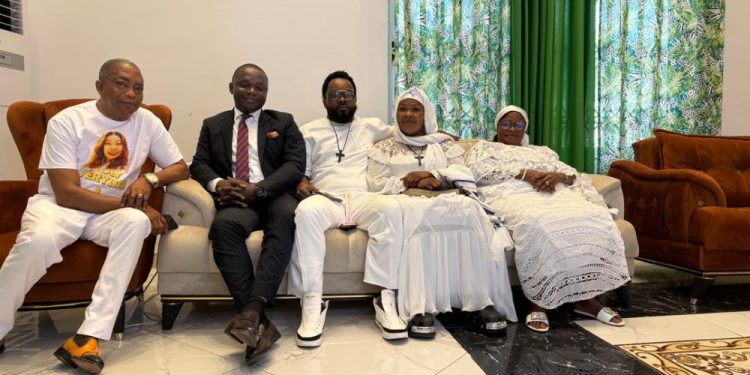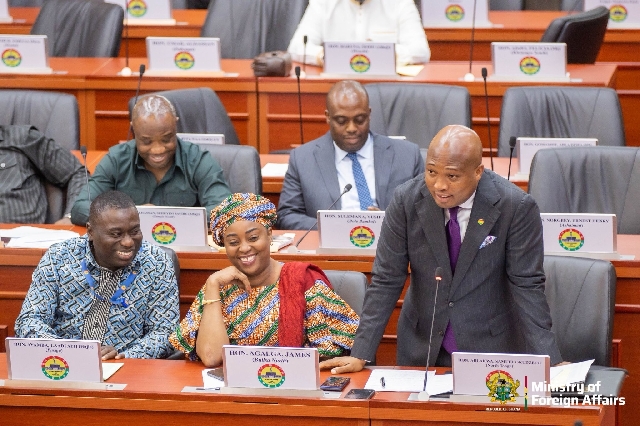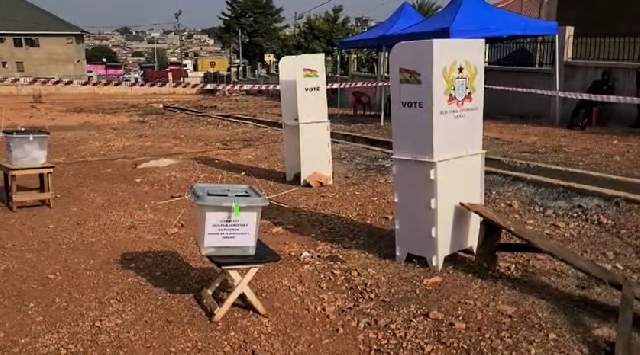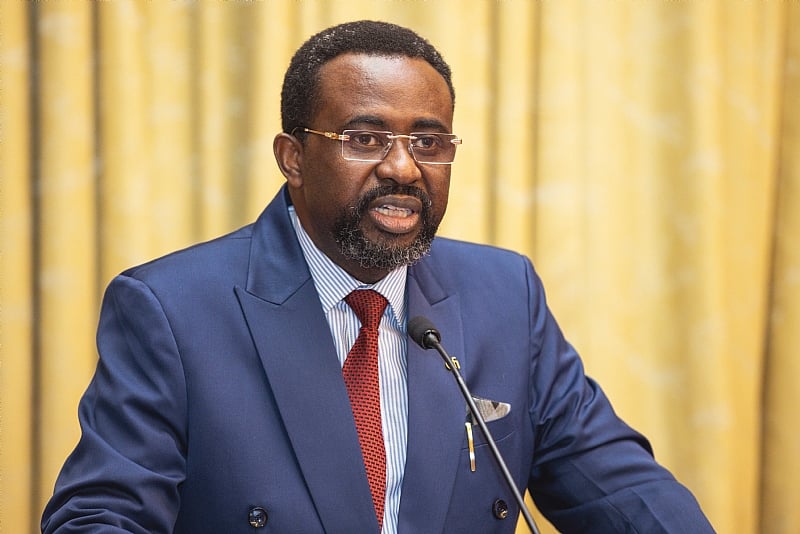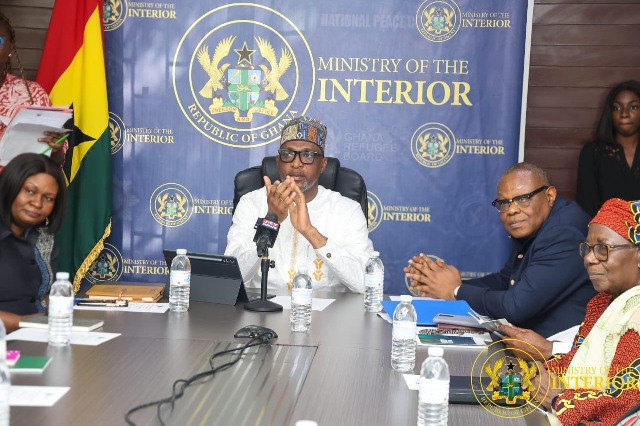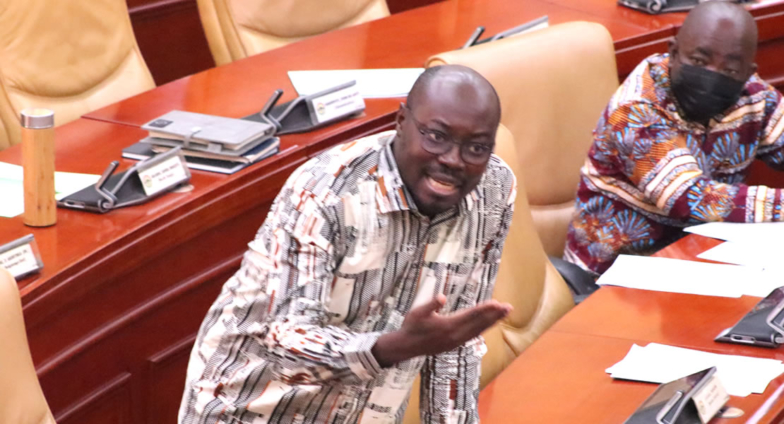IMF Warns Ghana’s Fight Against Corruption Is at a Breaking Point Amid Chronic Underfunding
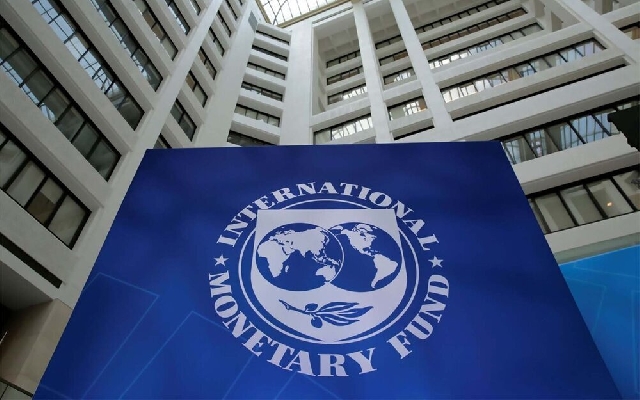
Ghana’s battle against corruption is facing a critical threat, with the nation’s key accountability institutions “severely weakened” by persistent underfunding, according to the 2025 IMF Governance Diagnostic Report. The report, conducted in September 2023, cautions that the country’s anti-corruption architecture is approaching a breaking point unless urgent reforms are implemented. The IMF’s findings reveal that major institutions, including the Office of the Special Prosecutor (OSP), the Economic and Organised Crime Office (EOCO), and the Commission on Human Rights and Administrative Justice (CHRAJ), regularly receive less than half of their budgets as approved by Parliament. As a result, agencies tasked with investigating corruption, prosecuting financial crimes, safeguarding public funds, and protecting whistleblowers are left struggling without the basic resources they need to operate effectively. Despite annual budgetary allocations, the report points out that actual disbursements from the Ministry of Finance fall far short, leaving institutions unable to recruit staff, maintain investigations, upgrade technology, or conduct specialised prosecutions. Even the OSP, established to spearhead high-profile corruption cases, is forced to seek clearance from the Ministry of Finance before hiring or paying its own staff, an arrangement the IMF describes as fundamentally incompatible with operational independence. Beyond the financial shortfall, the IMF warns of deep structural vulnerabilities. Ghana’s anti-corruption framework is described as “fragmented, overlapping and exposed to political influence,” with harmful duplication of mandates among the OSP, EOCO, and CHRAJ. The lack of clear coordination protocols, the report says, creates confusion, delays investigations, and allows political actors to exploit institutional weaknesses. The Attorney-General’s sweeping constitutional authority over all prosecutions further undermines the prosecutorial autonomy of agencies like EOCO and the OSP, rendering their independence “more symbolic than guaranteed.” The IMF points to recent high-profile incidents, such as the resignation of the first Special Prosecutor and the removal of the Auditor-General, as evidence of mounting political pressure on Ghana’s anti-corruption bodies. While Ghana has made gains through digitalisation, access-to-information reforms, and improved procurement laws, the IMF asserts that these steps are overshadowed by the deeper structural issues. The report concludes that, without decisive reforms, including guaranteed financing, clearer mandates, and effective insulation from political interference, corruption will continue to drain public revenue, scare off investors, and undermine Ghana’s prospects for economic recovery. Source: Apexnewsgh.com
IMF Monitoring Impact of Ghana’s Anti-LGBTQI Bill on Financial Support

The International Monetary Fund (IMF) has stated that it is unable to provide any comments regarding Ghana’s anti-LGBTQI bill, which was recently approved by Parliament but has not yet been signed into law. In an email response to Joy Business, the IMF mentioned that they are not in a position to assess the economic and financial implications of a bill that has not been enacted. The IMF also noted that its internal policies do not permit discrimination based on personal characteristics, including gender, gender expression, or sexual orientation. Emphasizing the importance of diverse and inclusive economies, the IMF stated that they are closely monitoring the developments in Ghana. On the other hand, Ghana’s Ministry of Finance has raised concerns about potential financial repercussions if President Nana Akufo-Addo approves the anti-LGBTQI bill. The ministry warned that Ghana could lose approximately $3.8 billion in financial support from the World Bank if the bill becomes law. This loss would impact various development projects and the country’s foreign exchange reserves. Furthermore, the US Ambassador to Ghana, Ms. Virginia Evelyn Palmer, expressed disappointment over the bill, stating that it would violate basic human rights and constitutional freedoms. She highlighted the negative impact the bill could have on public order, public health, Ghana’s international reputation, and economy. Ms. Palmer urged for the protection of the LGBTQ community and emphasized the importance of inclusivity for economic growth and investment in Ghana. If the bill is enacted, Ghana may face significant economic consequences and potential loss of international financial support. The government’s decision regarding the bill could have lasting implications on the country’s development and global standing. Please contact Apexnewsgh.com on email apexnewsgh@gmail.com for your credible news publications. Contact: 0256336062
Export and Import Regulations 2023, offends clear provisions of the IMF Bailout Agreement–Mahama Ayariga

Mahama Ayariga, the Member of Parliament for Bawku Central, has criticized the Proposed Restrictions on Importation of Selected Strategic Products as it contradicts Ghana’s commitments under the IMF Bailout Agreement. According to Ayariga, the Export and Import Regulations, 2023, violate the provisions stated in the international agreement and show a disregard for the stipulations outlined in the IMF Country Report No. 23/168 issued in May 2023. Ayariga also questioned the level of communication between the Ministry of Trade and Industry and the Ministry of Finance and Economic Planning, suggesting a lack of coordination within the government. He further claimed that the NPP Government is confused about the country’s economic direction and financial management, and unable to uphold its commitments to the IMF. Please contact Apexnewsgh.com on email apexnewsgh@gmail.com for your credible news publications. Contact: 0256336062
Bank of Ghana Remains Focused on Achieving 8% Inflation Target– Dr. Leandro Medina

Dr. Leandro Medina, the International Monetary Fund (IMF) Resident Representative in Ghana, stated that the Bank of Ghana’s efforts to guide inflation back to its 8 percent target are not hindered by its participation in the Domestic Debt Exchange Programme (DDEP). The BoG’s involvement in the DDEP is part of a strategy to share the burden placed on the government and banks. In an interview with the B&FT newspaper, Dr. Medina explained that the IMF’s analysis indicated that the BoG can effectively execute its policy mandates, including bringing inflation back to its target gradually. He also mentioned that the BoG’s net equity is expected to improve over time and eventually become positive again. The BoG recently reported a loss of GH¢60 billion, attributing it to the depreciation of the local currency, impairment of loans and advances, and the impairment of the government’s securities holdings resulting from the Domestic Debt Exchange Programme. The IMF reiterated these reasons for the loss. In a recent statement, the International Monetary Fund (IMF) addressed the $3 billion bailout and provided answers to frequently asked questions. The Fund acknowledged that the Ghanaian authorities’ domestic debt exchange (DDE) plays a crucial role in their efforts to restore macroeconomic stability and ensure public debt sustainability. The IMF highlighted that the Bank of Ghana (BoG) is participating in the DDE to share some of the burden that it places on government debt holders, banks, financial institutions, pension funds, and individuals. However, this participation has resulted in a loss for the BoG, resulting in a negative net equity. Despite this, the IMF emphasized that the BoG will still be able to fulfill its policy mandates and work towards achieving the 8-percent inflation target. The IMF also reassured that the central bank’s income is expected to be sufficient to cover the operational costs related to monetary policy. Furthermore, they projected that the BoG’s net equity will improve significantly over time and eventually return. Source: Apexnewsgh.com/Ghana For publication please kindly contact us on 0256336062 or Email apexnewsgh@gmail.com
we need stronger IMF support to prevent out-of-control spiral’ – Addison tells IMF MD
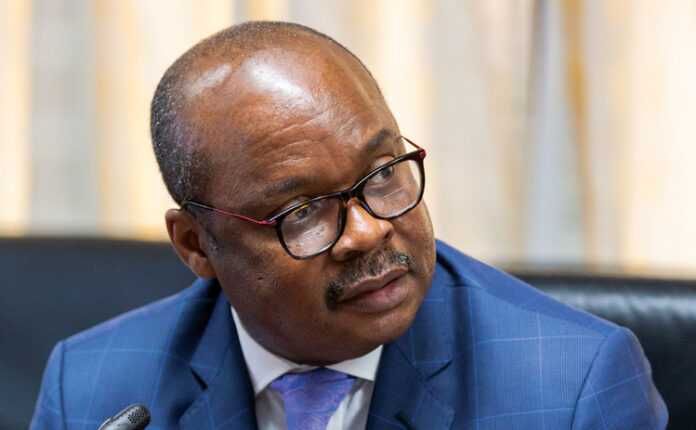
The governor of Ghana’s central bank, Dr Ernest Addison, has informed the International Monetary Fund MD Kristalina Georgieva at the 2023 Africa Consultative Group Meeting in Washington DC that the COVID-19 pandemic, the war in Ukraine, and the tightening of financing conditions “have all acted in concert to expose Africa’s heightened debt levels, as well as elevated debt-service costs and rollover risks”. Read the Bank of Ghana governor’s full speech below: Thank you, Chair. I wish to focus my intervention on addressing debt challenges and enhancing debt management to improve access to finance in Africa. But, let me first take this opportunity to express my sincere appreciation to Madam Georgieva, for the exceptional leadership and relentless efforts in exploring, to the full extent possible, resources to help member countries, especially in Africa, mitigate the adverse impact of the COVID-19 pandemic. African economies have accumulated debt at a rapid pace over the past decade to help address developmental and infrastructural needs. Consequently, the continent’s debt structures have become more sophisticated, including bonds, loans, collateralised debt contracts and repurchase agreements, and the creditor base has become more diverse and fragmented. The COVID-19 pandemic, the war in Ukraine, and the tightening of financing conditions have all acted in concert to expose Africa’s heightened debt levels, as well as elevated debt-service costs and rollover risks. At the same time, recurrent climate-related disasters are adding to the already acute fiscal and debt problems on the continent. The WBG World Debt Report (2022) estimates Sub-Saharan Africa’s (SSA’s) long-term external debt stock at US$636 billion at the end of 20211, with nineteen of the 35 low-income countries either in or at high risk of debt distress while some others (including Ghana) are completely shut out of the international capital market. If unaddressed, the overall debt situation is expected to worsen in 2023 and further constrain the capacity for many member countries to raise the needed funding to deliver broader social protections and respond to climate change. To address the fast-deteriorating debt dynamics in the continent: African countries remain committed to pursuing credible fiscal consolidation, anchored on efficient expenditure rationalization and robust domestic revenue mobilisation measures. This will help build buffers for critical social interventions and infrastructural development, while safeguarding medium-term debt sustainability. To boost fiscal resilience, members are undertaking measures to improve public financial and investment management, enhance fiscal transparency and governance, address corruption risks, and progressively phase out untargeted subsidies. African countries also recognize the need to prioritize efficient debt management practices, consolidate debt data in a centralized system, publish reliable, comprehensive, and timely debt information, and deepen domestic debt and capital markets to foster greater access to long-term finance. It is, however, clear that domestic policy efforts alone are inadequate to sustainably address the debt burden and restore macroeconomic stability in the continent. For this reason, Madam Managing Director, and given the current context of fragmented global financial safety nets, much stronger support is needed from the IMF to prevent the region’s debt levels from spiraling out of control. Going forward, Madam Managing Director, the global policy dialogue should focus on Africa’s debt sustainability, long-term investment needs, macroeconomic resilience to shocks, and laying the foundation for the continent’s inclusive and job-rich growth. Against this backdrop, I would suggest the following for consideration: Improve the IMF’s lending framework to enhance the continent’s access to Fund resources is macro-critical in this challenging environment. In this regard, I would urge the Fund to consider increasing concessional financing to the continent by modifying the access thresholds, including expanding access limits and relaxing eligibility criteria for PRGT resources. This will ensure timely financing assistance to most vulnerable members. It is in this context we welcome the Fund’s decision to temporarily raise the annual and cumulative limits in the General Resources Account (GRA) to 200 percent and 600 percent of quota respectively for a period of 12 months. Nevertheless, we underscore the importance of aligning PRGT access limits with those of the GRA to enhance Fund support to PRGT-eligible members facing acute debt challenges, while strengthening the fundraising efforts to bolster the PRGT resource envelope. The Fund should continue close engagements with other international financial institutions and creditors to strengthen the multilateral framework for dealing with Africa’s debt distress in a timely manner. In this context, the G20 Common Framework (CF) should be enhanced to deliver swift, predictable, transparent, and equitable debt resolutions while permitting debt service suspension during negotiation to offer instantaneous relief to debtors. As you are aware, Madam Managing Director, a protracted CF process undermines overall confidence and impacts IMF’s catalytic role, in addition to its negative demonstration effect with new countries that are hesitant to request a CF debt treatment. We also underscore the need for the newly created Global Sovereign Debt Roundtable to remain focused on accelerating debt restructuring processes and making the G20 Common framework more efficient. Finally, the Fund should continue tailored capacity development and surveillance support, in conjunction with other international partners, which are indispensable in the continent’s reform agenda towards addressing debt challenges and creating fiscal space to tackle longstanding snags to sustained economic growth and development in member countries. Thank you once again, Chair and Madam Managing Director. Source: Apexnewsgh.com/Ghana For publication please kindly contact us on 0256336062 or Email apexnewsgh@gmail.com
US$3bn bailout: ‘Give Ghana necessary financing assurances as soon as possible’ – IMF tells China, Paris Club

The International Monetary Fund (IMF) has urged Ghana’s creditors to hasten to grant the financing assurances needed promptly so the Board of the Bretton Woods institution can approve the cocoa, gold and oil-producing West African country’s $3-billion extended credit facility to restore economic stability to the nation. “We’re calling on bilateral creditors to support Ghana’s effort to restore debt sustainability, form an official creditor committee, and deliver the necessary financing assurances as soon as possible”, the Fund’s communications director Julie Kozack told journalists at a news briefing in Washington DC. A questioner has asked: “Ghana’s president has said he expects the programme request to go to the IMF Board by the end of this month. Is that realistic? Can you give us an update on that?” Ms Kozack answered: “So, on December 12th, 2022, the IMF reached a staff-level agreement with Ghana on a three-year programme supported by an arrangement under the ECF. This programme was worth about $3 billion”. “Ghana also requested a debt treatment under the G20 Common Framework”, she noted. She said: “Financing assurances from partners and creditors are necessary for presenting the programme request to the IMF’s Executive Board for approval”, adding: “We continue to engage closely with the Ghanaian authorities while they seek these assurances”. The IMF programme, Ms Kazack indicated, “aims to support Ghana’s efforts to restore macroeconomic stability, debt sustainability while also protecting the vulnerable, preserving financial stability, and laying the foundation for strong and inclusive growth”. A few weeks ago, President Nana Akufo-Addo said his government is “making progress on the external debt negotiations” with its development partners “since the government announced an external debt service suspension on 19th December 2022 for certain categories of external debt, to ensure an orderly restructuring”. The suspension, the president told parliament in his state of the nation address on Wednesday, 8 March 2023, “is an interim emergency measure toward a comprehensive external debt operation which will contribute to the restoration of our debt sustainability in line with our request for a debt treatment under the G20 Common Framework”. “I want to express our appreciation to the members of the Paris Club and to the Peoples’ Republic of China for the cooperation they have, so far, exhibited to us in attempting to reach an agreement, and in their attempt to establish an Official Credit Committee”. “We look forward to their fast-tracking the needed financing assurances for IMF approval. We are confident that, with their cooperation, we will reach our March deadline for going to the Fund”, he said. Already, the government has restructured its domestic debt and now seeking to replicate it on the international front in order to clinch an approval for a $3-billion extended credit facility from the Board of the IMF. China debt talks ‘very positive’, ‘encouraging’ | Ofori-Atta ‘looking forward to securing external assurances very soon’ Meanwhile, Finance Minister Ken Ofori-Atta has said his meeting with China on Ghana’s external debt restructuring programme is has been very good so far. Ghana is seeking debt forgiveness or restructuring of $1.7 billion owed China. The external debt restructuring programme comes on the heels of a domestic one recently concluded by the government. It is part of Ghana’s quest to secure a $3-billion extended credit facility from the International Monetary Fund. Announcing progress of the talks with China, Mr Ken Ofori-Atta’s office tweeted: “So far had very positive and encouraging meetings in China! Looking forward to securing external assurances very soon, even as we pass our outstanding domestic revenue bills back home. Great progress on all fronts…#ResolvingTogether #GhanaFirst”. So far had very positive and encouraging meetings in China! Looking forward to securing external assurances very soon, even as we pass our outstanding domestic revenue bills back home. Great progress on all fronts…#ResolvingTogether #GhanaFirst — Office of the Finance Minister-Ghana (@oofmghana) March 24, 2023 In a related development, the IMF has advised African countries to take into consideration, the effects their debt restructuring programmes could have on the domestic banking sector. At the 2023 Oxford Center for the Study of African Economies Conference at St Catherine’s College, Oxfordby, Mr Abebe Aemro Selassie Director, African Department of the IMF, said: “For cases where debt is unsustainable, it goes without saying that it needs to be restructured”. In such cases, he said “the burden of making repayments should not fall unduly on debtor countries”. “But this is easier said than done”, he admitted, saying: “Debt restructurings have always been difficult, and even more so now in the context of a more diversified creditor base and more complex structure of public debt. “Take domestic debt, which now accounts for about half of all public debt in sub-Saharan Africa. “In cases where public debt is unsustainable and this exposure needs to be included in the restructuring perimeter, careful consideration needs to be given to the effects on the domestic banking sector, how quickly market access can be regained etc”, he advised. “And with respect to external creditors, countries of course have even less sway over the pace at which restructuring can happen, as clearly shown by the ongoing challenges with the Common Framework”. This, he noted, “is even more frustrating in unsustainable cases where the official creditors’ inability to agree on a needed debt treatment prevents the IMF from providing timely support to countries during periods of acute distress”. Read Mr Abebe Aemro Selassie’s full remarks below: Remarks at the 2023 Oxford Center for the Study of African Economies Conference by Abebe Aemro Selassie Director, African Department of the IMF St Catherine’s College, Oxford March 20, 2023 Thank you very much for the opportunity to address you all this morning. And it’s good to do so in person this time, with the pandemic, for the most part, behind us, To be clear though, the economic consequences of the pandemic continue to be felt acutely in most African countries. Unlike much of the rest
BoG gets Resident Advisor on Financial Supervision
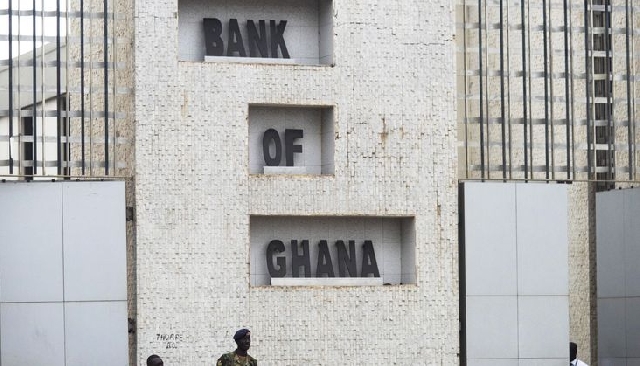
At the request of Bank of Ghana (BoG) and fully funded by Switzerland’s State Secretariat for Economic Affairs, SECO, the International Monetary Fund (IMF) has assigned a Resident Advisor in financial sector supervision to Bank of Ghana to provide technical assistance and to assist in building the capacity of the banking supervision function. The central bank in a statement announcing the appointment said the Advisor’s placement is a continuation of cooperation between Bank of Ghana, the IMF and SECO, which commenced in 2015 and has already seen the assignment of a previous Advisor until 2018. Achievements from the past collaborative effort according to the statement include the passage of the Banks and Specialised Deposit-Taking Institutions Act, 2016 (Act 930), the development and issuance of the Corporate Governance Directive 2018 and the Capital Requirement Directive of 2018. The Advisor is Mr. Leonard Chumo. He has first-hand knowledge of supervisory work from leading central banks, as well as previous technical assistance experience in the West Africa Region. Mr. Chumo’s three year-assignment commenced on 6th February 2023. —Classfm—
Ghana’s economy’ll cool off in 2023, rebound in 2024 – IMF
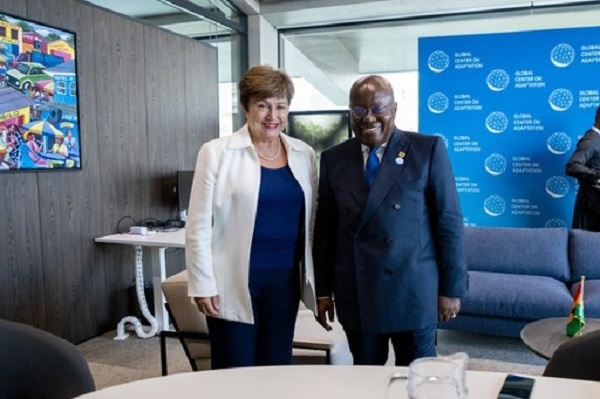
The International Monetary Fund has said it expects Ghana’s economy to pick up steam in 2024. During the Q&A session at the just-ended World Economic Forum in Davos, Switzerland, Mr Daniel Leigh, Division Chief at the Research Department, told journalists, in response to a question that Ghana’s tottering economy will grow slowly this year but then pick up momentum the following year. “On Ghana, we do expect growth to slow this year”, Mr Leigh said, explaining: “This is partly because of the global headwinds…” “So, it’s a difficult time for the global economy that affects Ghana”, he noted. But also, he added, “there are some domestic headwinds. In particular, inflation has increased significantly”. “And, so, the central bank is tightening monetary policy, but that is cooling the economy domestically”, Mr Leigh noted, indicating: “Plus, the fiscal policies are tightening to address the elevated debt. This is the cooling in 2023”. “But in 2024, we see a rebound, in particular, in the extractive activities. And that is going to support Ghana in 2024”, he pointed out. “I would add that right now – so just very recently – the IMF team went to Ghana, reached agreement with the Ghanaian authorities on an economic reform programme that will be supported under a $3-billion extended credit facility”. “And the goal of that programme is to reestablish macroeconomic stability, debt sustainability, and create the foundations for higher and inclusive growth over the medium-term”. On the expected situation in the sub-region, Mr Pierre-Olivier Gourinchas, Chief Economist and Director, Research Department, said: “On Sub-Saharan Africa, what I can say is that we have a difficult year for the region that is very much affected by the external forces that are shaping the global outlook, whether it’s the Russian war in Ukraine and energy crisis or the fight against inflation and the tightening of global financial conditions that comes with that”. “But growth is projected to be around 3.8 per cent in Sub-Saharan Africa. And this is quite a bit below the typical growth rates that the region experienced before the pandemic”, Mr Gourinchas said. “And in addition, in the region, there is an issue of food insecurity. Even though food prices have come back – the food price index has come back to pre-war level, so levels we had about a year ago or a little bit more than that – they’re still elevated compared to pre-pandemic times. And there are in many countries a large portion of the population may be subject to food insecurity”. —Classfm— For publication please kindly contact us on +233256336062 or Email apexnewsgh@gmail.com
Expect full-blown IMF programme in mid-Jan or Feb – Akufo-Addo
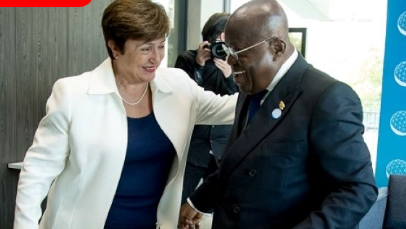
Ghana’s ongoing negotiations with the International Monetary Fund are expected to reach a full-blown agreement either in January or February, President Nana Akufo-Addo has announced. Speaking at a meeting with some African-American students from the Harvard Business School at the Jubilee House, the president acknowledged the challenges facing the economy: “We’ve had difficulties in the past few years trying to reposition our economy to grow again”. He said: “Some basic statistics that all of you are familiar with have pushed us back: the energy sector crisis, the global food crisis, and many others and Ghana is yet to escape from all of these crises”. Giving an update on the IMF talks, Mr Akufo-Addo said: “We are going through the processes with the International Monetary Fund right now and hopefully, by the middle of this month or February, a full-blown IMF programme will be put in place which will help us repair our public finances which took a big hit from external forces.” In December 2022, the IMF and the Ghanaian authorities reached a staff-level agreement on economic policies and reforms to be supported by a new three-year arrangement under the Extended Credit Facility (ECF) of about US$3 billion. The IMF said the Ghanaian authorities’ strong reform programme is aimed at restoring macroeconomic stability and debt sustainability while protecting the vulnerable, preserving financial stability, and laying the foundation for strong and inclusive recovery. To support the objective of restoring public debt sustainability, the government of Ghana has launched a comprehensive debt operation. In addition to a frontloaded fiscal consolidation and measures to reduce inflation and rebuild external buffers, the programme envisages wide-ranging reforms to address structural weaknesses and enhance resilience to shocks. An IMF team led by Mr Stéphane Roudet, Mission Chief for Ghana, visited Accra from December 1 – 13, 2022, to discuss with the Ghanaian authorities IMF support for their policy and reform plans. At the end of the mission, Mr Roudet issued the following statement: “I am pleased to announce that the IMF team reached a staff-level agreement with the Ghanaian authorities on a three-year program supported by an arrangement under the Extended Credit Facility (ECF) in the amount of SDR 2.242 billion or about US$3 billion. The economic program aims to restore macroeconomic stability and debt sustainability while laying the foundation for stronger and more inclusive growth. The staff-level agreement is subject to IMF Management and Executive Board approval and receipt of the necessary financing assurances by Ghana’s partners and creditors. “The Ghanaian authorities have committed to a wide-ranging economic reform program, which builds on the government’s Post-COVID-19 Programme for Economic Growth (PC-PEG) and tackles the deep challenges facing the country. “Key reforms aim to ensure the sustainability of public finances while protecting the vulnerable. The fiscal strategy relies on frontloaded measures to increase domestic resource mobilisation and streamline expenditure. In addition, the authorities have committed to strengthening social safety nets, including reinforcing the existing targeted cash-transfer program for vulnerable households and improving the coverage and efficiency of social spending. “Structural reforms will be introduced to underpin the fiscal strategy and ensure a durable consolidation. These include developing a medium-term plan to generate additional revenue and advancing reforms to bolster tax compliance. This will help create space for growth-enhancing measures and social spending. Efforts will also be made to strengthen public expenditure commitment controls, improve fiscal transparency (including the reporting and monitoring of arrears), improve the management of public enterprises, and tackle structural challenges in the energy and cocoa sectors. The authorities are also committed to further bolstering governance and accountability. “To support the objective of restoring public debt sustainability, the authorities have announced a comprehensive debt restructuring. Sufficient assurances and progress on this front will be needed before the proposed Fund-supported program can be presented to the IMF Executive Board for approval. “Reducing inflation, enhancing resilience to external shocks, and improving market confidence are also important program priorities. Accordingly, the Bank of Ghana will continue to strengthen its monetary policy framework and promote exchange rate flexibility to rebuild external buffers. As part of the authorities’ debt strategy, a domestic debt exchange has been launched. The authorities are committed to taking the necessary mitigation measures to ensure financial sector stability is preserved. “IMF staff held meetings with Vice President Bawumia, Finance Minister Ofori-Atta, and Bank of Ghana Governor Addison, and their teams, as well as representatives from various government agencies. The IMF team has also continued to engage with other stakeholders. Staff would like to express their gratitude to the Ghanaian authorities, Parliament’s Finance Committee and all the private sector, trade union, and civil society representatives for their open and constructive engagement over the past few months.” Classfm—
Ofori-Atta excited after reaching agreement with IMF
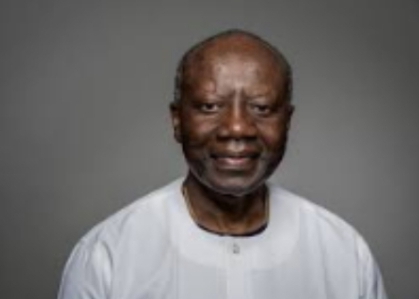
The Finance Minister Ken Ofori-Atta has extended his appreciation to key stakeholders including Cabinet, Parliament, FBOs, CSOs, and members of Academia, for their invaluable contributions to the preparation of the Post-Covid-19 Programme for Economic Growth (PC-PEG) which has underpinned the IMF Programme negotiations. Apexnewsgh.com report Finance Minister Ken Ofori-Atta has said Ghana is “blessed” to have secured a staff-level agreement with the International Monetary Fund for a US$3-billion extended credit facility in five months contrary to the protracted situation with some African countries who negotiated similar deals. Read Mr Ofori-Atta’s full speech below:I will like to first of all thank the almighty God for providing the needed guidance to the GoG and the Fund to get us where we are today. ii. I will also like thank HE the President for his leadership and direction throughout this period;iii. Let me also express appreciation to the IMF in general and in particular the IMF MD and management, Stephane Roudet, IMF Mission Chief to Ghana and Leo Medina, and the indomitable spirit of the team for their commitment to Ghana during these challenging times; iv. In addition, I will like to express appreciation to key stakeholders including Cabinet, Parliament, FBOs, CSOs, and members of Academia, for their invaluable contributions to the preparation of the Post-Covid-19 Programme for Economic Growth (PC-PEG) which has underpinned the IMF Programme negotiations; and v. Last but not the least I will like to express my sincere appreciation to the staff of MoF and BoG’s leadership under Governor Addison and the trusted Deputies for their hard work and sacrifices throughout this entire process. Contexti. A lot of work has gone on behind the scenes for almost 6 months when Government formally announced its intention to engage the IMF for an IMF-supported programme, to enable us reach this Staff Level Agreement (SLA) today which paves the way for the IMF’s Management and Executive Board to approve Ghana’s programme request early next year. ii. Since the announcement on 1st July, 2022 to formally engage the IMF for an IMF-supported Programme, there have been three rounds of negotiations with the IMF interspersed with a number of virtual meetings in-between to ensure both the GoG and the IMF teams work around the clock to get the SLA by end Dec 2022. iii. Against the backdrop of Staff Programmes, Ghana is indeed blessed to conclude our SLA within 5 months. This is historic in recent times relative to what we witnessed with Zambia, Chad and Ethiopia. The IMF Programmei. The GoG and the IMF teams have worked tirelessly to agree on key aspects of the IMF Programme at the Staff Level.ii. Key deliverables over the period include:a) Preparation of the Post-Covid-19 Programme for Economic Growth (PC-PEG);b) A Medium-term macroeconomic framework;c) Debt Sustainability Analysis (DSA) and Debt Management Strategy;d) Structural reforms to address structural bottlenecks, improve competitiveness and promote efficiency and effectiveness;a) Preparation of the Post-Covid-19 Programme for Economic Growth (PC-PEG);b) A Medium-term macroeconomic framework;c) Debt Sustainability Analysis (DSA) and Debt Management Strategy;d) Structural reforms to address structural bottlenecks, improve competitiveness and promote efficiency and effectiveness;i. Key fiscal measures, structural reforms, and the medium-term macro-fiscal framework in the 2023 Budget are aligned with the IMF-supported Programme. It is, therefore, crucial that we receive support from all stakeholders including: a) Parliament to ensure that the 2023 budget including all revenue measures are passed; andb) Creditors to ensure a successful debt operationTruly, the eventual conclusion of the program will assist us in our efforts to restore stability, tackle inflation, and strengthen our currency.That is why the various ingredients of the program should be supported by all Ghanaians and all stakeholders.We can only get to the IMF Board if we get sufficient commitment from our creditors in support of the debt operation. i. The 2023 Budget is anchored on increasing domestic revenue mobilisation effort by 1.2 percentage points of GDP. On the expenditure side, the 2023 Budget proposes to reduce expenditures (on commitment basis) by about 2 percentage points of GDP from 2022 to 2023. Primary expenditures are expected to be reduced through a reduction in allocation on the Use of Good and Services and Domestically Financed Capital expenditure on a commitment basis. ii. These fiscal adjustments alone are not enough to address the country’s economic challenges, hence the ongoing debt restructuring aimed at restoring debt sustainability in the medium-term. iii. The 2023 Budget contains important social protection measures to support the most vulnerable including measures that seek to gradually increase the number of beneficiary households as well as the value cash transfers under the LEAP. Other social protection programmes which will be prioritised under the programmes include the NHIS, the Capitation Grant, and the School Feeding Programme. Concluding Remarksiv. We are optimistic that the 2023 Budget adjustment strikes the right balance between determination and pragmatism. v. Already, the economy is responding positively to the news of GoG and the IMF reaching an SLA and we are eager to leverage this momentum to the very moment when the IMF Executive Board approves the Programme request. We are already seeing significant improvements in the exchange rate with the Ghana cedi recovering against major currencies. vi. We hope that Ghanaians will continue to support all efforts to restore macroeconomic stability and promote robust and inclusive growth. vii. We are confident, as a resilient people, and we shall rally to support this great enterprise, to restore macroeconomic stability and promote robust and inclusive growth. The world is looking at us, and I know we can do it. viii. To God, indeed, be the glory for the great thing he hath done within 5 months. I am certain that God, who began the good work, will continue until it is finally finished – Greater things He will do. For we shall gather the harvest with joy. ix. These, indeed, are both times for a Joseph recovery and a Nehemiah rebuildingx. Let us continue with courage, the spirit of love for each other and self-discipline to go through this together.xi. Thank



